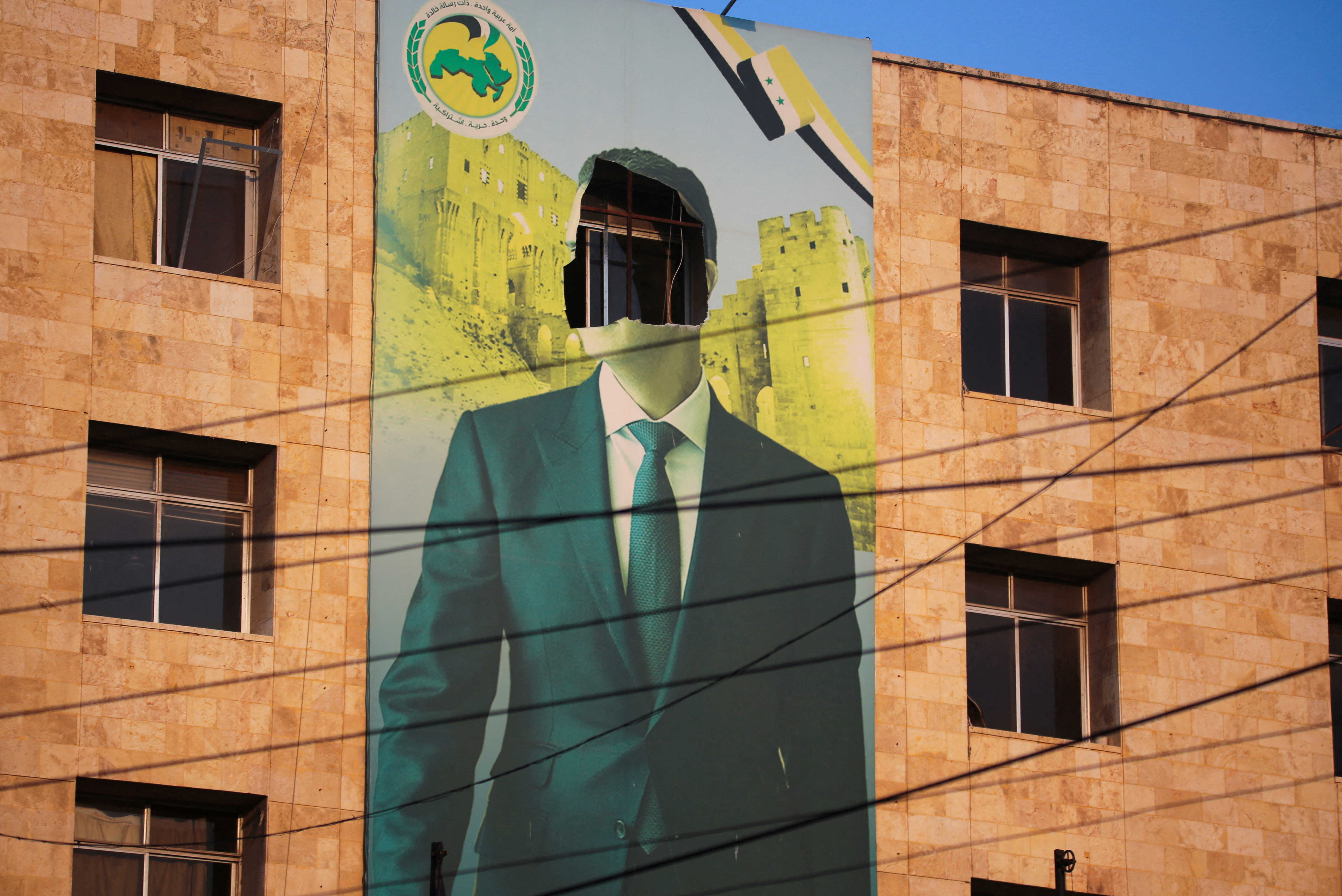Syrian Rebels Take Over Aleppo
At the end of November, large-scale fighting resumed in Syria. Hayat Tahrir al-Sham, an Islamist opposition group, launched an attack on Bashar al-Assad’s forces and took control of Syria’s second-largest city, Aleppo. The regime’s limited attempts at a defence indicate the effective use of the element of surprise by the opposition. Despite Assad’s control over most of Syria for several years now, he has low legitimacy and has been weakened by internal strife, corruption and dependence on foreign support.
 Mahmoud Hassano / Reuters / Forum
Mahmoud Hassano / Reuters / Forum
What has been the situation for the Syrian rebels in recent years?
Syrian opposition forces have remained divided for years between the Islamist Hayat Tahrir al-Sham (HTS; considered a terrorist organisation by, among others, the EU due to its former links with Al-Qaeda, broken off in 2016), the Turkish-backed Syrian National Army (SNA) and the U.S.-backed Kurdish-led Syrian Democratic Forces (SDF). The Assad regime’s military successes have reduced opposition-controlled territory to around 37% of the country (of which 26% was controlled by the SDF). In addition, the opposition groups were weakened by internal divisions, governance difficulties, and human rights violations. The consequences of these problems were numerous protests, disputes, and armed clashes. Despite this, HTS has increased its military capabilities since 2020 by opening a professional military academy run by deserters from the Syrian army and developed by special forces units. It has also increased the quality of services to residents in the province of Idlib, which it controls, and softened its rhetoric, for example, by declaring respect for the rights of ethnic and religious minorities.
What motivated the rebels to launch the attack now?
The operation by the HTS on 27 November was primarily aimed at seizing Aleppo and its surrounding villages, which the regime and its support forces had been based as they carried out attacks on territory controlled by the organisation in recent years. In its official communication, the organisation stressed that the launch of the offensive was a direct response to the intensification of drone attacks by Assad’s forces in recent months (392 were counted between January and June). The HTS calculations were influenced by the growing weakening of the Assad regime due to deepening economic problems and international isolation, which the normalisation of relations with Arab states has failed to overcome. The result, for example, was a 350% increase in the number of people fleeing Assad-controlled territories compared to last November, and they demanded that the HTS retake the Aleppo region they had abandoned.
How have the Assad regime and other forces in Syria responded?
The ineptitude of the Assad regime and the fragmentation of its army was apparent in the limited response to the HTS offensive and the rapid abandonment of the city by the regime’s forces, which allowed the rebels to take Aleppo, part of Hama, and move the Syrian frontline for the first time since March 2020. The SDF also initially expanded its holdings around Aleppo (e.g., by seizing the airport), but this changed when pro-Turkish SNA troops, motivated mainly by hostility towards the Kurds, joined the fighting. They attacked and effectively eliminated the Kurdish enclave around Tal Rifat north of Aleppo. The SDF forces therefore reached an agreement with the HTS, allowing them and some civilians to safely withdraw from the territories seized by the SNA, and to join the fighting in other parts of Syria. Currently, the most intense fighting between the rebels and the regime’s military is taking place in and around the city of Hama.
Since the resumption of fighting, Assad has been describing it as a terrorist attack by the HTS and arguing that it poses a threat to religious minorities. His affiliated social media accounts have been posting false information about threats to Christians living in Aleppo, although in reality the non-Muslim neighbourhoods of the city currently remain peaceful.
How might Russia and Iran respond?
Russia, Assad’s most important foreign ally, regards the rebels’ actions as a violation of Syrian sovereignty. On the day they took over Aleppo, Russia sacked the commander of its troops in Syria, Gen. Sergey Kiselyov, and then stepped up attacks on Aleppo and Idlib, including airstrikes on civilian infrastructure. For its part, Iran, whose support was also crucial to Assad’s survival, announced that it would maintain the presence of military advisers in Syria and continue to assist Assad. Iranian Foreign Minister Abbas Aragchi visited Damascus on 1 December, and on the night of 2 December, Iranian-backed fighters from Iraq entered Syrian territory. The initial reactions from Assad’s two most important partners point to a resumption of their close cooperation in Syria, which has been weakened in recent years by numerous disputes over the future of the Syrian army. At the same time, the escalation in Syria will pose a logistical challenge for Russia and Iran, as it is a key territory for the transport and smuggling of weapons necessary for the operations these countries conduct in the Middle East and Africa.
How will the escalation in Syria affect the region?
The escalation in Syria coincides with Israel’s war against Hamas, Hezbollah (although a ceasefire was recently agreed), and an increase in attacks by Iranian-linked organisations on U.S. targets in the Middle East, including Syria and Iraq. The attacks therefore increase the risk of armed conflict spreading across the region. For this reason, the Iraqi and Jordanian authorities, among others, strengthened security on their borders with Syria in a bid to prevent militants from entering their territory. Although Iran has succeeded in redeploying fighters from Iraq into Syria, the most important organisation supported by Iran, Hezbollah, which also fought on Assad’s side, has been significantly weakened by the Israeli military during the fighting in Lebanon, which will limit its ability to support the regime. The opposition’s attack voids the narrative promoted by Arab states for several years that the situation in the country has stabilised and that relations with Assad must be normalised in the face of his impending takeover of the whole of Syria, as planned by some EU states. From the perspective of the states of the Global Coalition against ISIS, of which Poland is a member, the escalation risks the consolidation of this organisation, which has already increased its activity inside Syria in recent months.



.jpg)
.jpg)
.png)